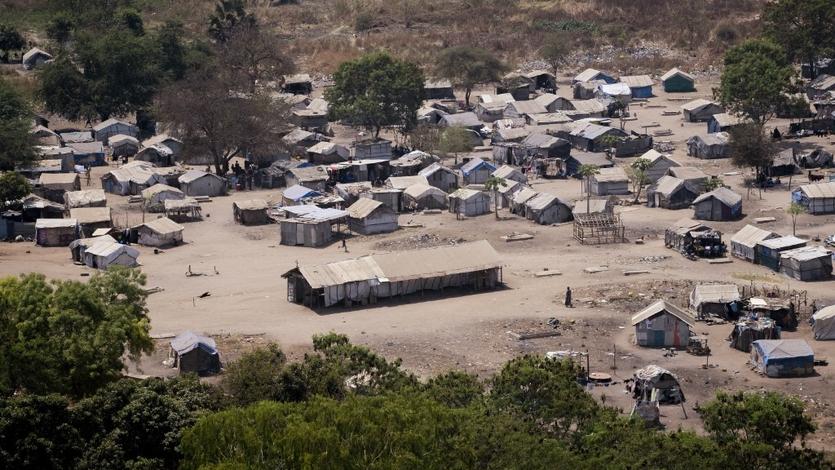 This photo shows a general view of the Juba, South Sudan, on Feb 4, 2023. (PHOTO / AFP)
This photo shows a general view of the Juba, South Sudan, on Feb 4, 2023. (PHOTO / AFP)
JUBA — The Sudan transitional government and several opposition groups under the Sudan Revolutionary Front (SRF) on Sunday signed an implementation matrix and agreed to a two-year timetable for implementation of the Juba peace agreement.
The Sudanese parties' commenced a workshop in Juba on Feb 13 to evaluate progress and challenges encountered in the course of implementing the peace deal which was mediated by South Sudan.
Sudan and South Sudan signed the 2012 cooperation agreement which covers a range of issues related to security, citizens' status, border and economy, oil and trade
Among the key issues in the signed matrix include, security arrangements for Darfur, South Kordofan, and Blue Nile state. The second issue is on wealth and power sharing with opposition groups in central and northern Sudan. South Sudan President Salva Kiir said the new roadmap is not an attempt at renegotiating the 2020 Juba peace agreement signed to end decades of conflict, but rather to facilitate dialogue among parties to transition the country toward sustainable peace.
READ MORE: Chinese envoy urges support for lifting of Sudan sanctions
"The objective of this workshop is to create a conducive environment for all the parties and stakeholders to evaluate the implementation of Juba peace agreement, specifically, the workshop takes stock of challenges faced during implementation in the last two years with a goal of nudging the parties towards forging new political will to resolve outstanding issues," Kiir said during the signing ceremony in the South Sudanese capital of Juba.
Kiir said that the government of Sudan can now engage in dialogue with hold-out groups, other Sudanese political forces and civil society groups on how to achieve a comprehensive peace in Sudan. He said the latest agreement will fast-track the formation of the transitional government of national unity in Khartoum.
"I would like to remind all of us that peace in Sudan is peace in South Sudan, let us agree and resolve to have peace within and across our international borders," Kiir said.
The opposition parties which signed the matrix include the SPLM-North sector led by Malik Agar, Justice Equality Movement under Jibril Ibrahim, the Democratic Union party led by Eltom Hajou and the Sudan Liberation Movement under Minni Minnawi.
Abdel Fattah Al-Burhan, head of Sudan's Transitional Sovereign Council said his government remains committed to realizing security, freedom and development in all regions of Sudan. "The implementation of Juba peace agreement will help in putting into practice the 2012 cooperation agreement, providing joint border security and opening of border points for trade and exchange."
Sudan and South Sudan signed the 2012 cooperation agreement which covers a range of issues related to security, citizens' status, border and economy, oil and trade.
READ MORE: UN envoy sees opportunity to end political crisis in Sudan
Minni Minnawi, the leader of Sudan Liberation Movement called on the international community and the region to avail financial and political support for the implementation of the peace deal which has stalled due to a lack of funding and political uncertainty in Sudan.
Stephanie Khoury, the Office-in-Charge of the United Nations Integrated Transition Assistance Mission in Sudan (UNITAMS), said support for the revitalized Juba peace agreement will set priorities and help finalize the implementation. She said implementation of the peace deal will transform Sudan besides unleashing new economic opportunities while guaranteeing safety and security for women who continue to face gender-based violence.


